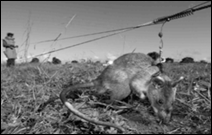题目内容
| then; do; ; right; show; different; who; late; easy; memory |
小题1: that people who studied music as a child are able to remember words much better than people 小题2: musical training. One experiment was 小题3: with sixty female American college students. A similar study was carried out with ninety boys in Hongkong of China. In both cases, students had to 小题4:words and pictures. 小题5: they were asked how many they remembered. Scientists found that students 小题6: studied music were better at remembering words, but both groups remembered the pictures equally well. Perhaps it is 小题7:to use your imagination to associate(联想) pictures with things in your life. Also, you can make up stories for pictures.Scientists explain the
小题8: by saying that both musical memory and verbal (written or spoken words) memory are located in the left side of the brain. Visual memory, the kind needed for pictures, is located in 小题9: half of the brain. Since verbal memory is very important for success at school, researchers now think that taking music lessons can give you a real academic advantage. In fact, when the students were tested a year 小题10: , the students who had stopped taking lessons still did well on verbal memory. Maybe it’s time to give music lessons a try.小题1:showed
小题2:without
小题3:done
小题4:memorize
小题5:Then
小题6:who
小题7:easier
小题8:differences
小题9:right
小题10:later
试题分析:这篇短文主要讲述了学习音乐的学生记忆单词的效果要好,因为音乐的学习和记忆单词和图片都是开发左半脑。
小题1:考查动词。句意:最近的调查已经表明那些学习音乐的孩子比那些没有学的记忆单词要好得多。结合语境及词汇可知用完成时,填动词的过去分词showed。
小题2:考查介词。句意:最近的调查已经表明那些学习音乐的孩子比那些没有学的记忆单词要好得多without介词,没有后加名词。故填without.
小题3:考查动词。句意:六十个美国女性大学生被做了这个实验。Be done表示被动语态,故填done过去分词。
小题4:考查动词。句意:在两种情况下,学生不得不记住单词和图片。Have to do 表示不得不做某事,结合语境故填memorize记住。
小题5:考查连词。句意:然后他们被问记住了多少单词。结合语境及所给词汇可知和前文构成连接作用,故填Then然后,连词。
小题6:考查连词。句意:科学家们发现那些学习音乐的学生记的单词要好。 Who在这里是引导定语从句,先行词是指人故用Who引导,结合语境及所给词汇填who。
小题7:考查形容词。句意;也许用你的想象力去联想生活中的东西是容易的。It’s +形容词比较级to do 做某事更怎么样。结合句意故填easier比较级更容易。
小题8:考查名词。句意:科学家解释不同说音乐的记忆和读写的记忆都是以左半脑为基础的。结合语境可知填名词的复数不同,故填differences。
小题9:考查频率副词。句意:视觉记忆,所需要的那种照片位于大脑的右半面。结合语境及所给词汇,故填right
小题10:考查连词。句意:事实上,当学生们被测试一年之后。一段时间+later表示在……之后,结合语境故填later

练习册系列答案
 挑战100单元检测试卷系列答案
挑战100单元检测试卷系列答案
相关题目

